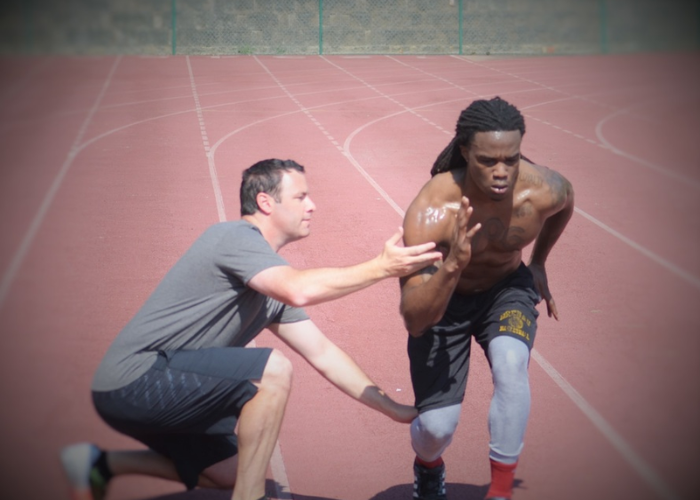In the world of athletics, the pursuit of excellence and the constant quest for better performance have led to the evolution of sports science. This multidisciplinary field brings together aspects of physiology, biomechanics, psychology, nutrition, and technology to unravel the mysteries of human physical potential. From the ancient Olympic Games to modern-day mega sporting events, athletes have strived to push the boundaries of what the human body can achieve. Now, with cutting-edge innovations and advancements in sports science, the future of athletics is being shaped in ways that were once unimaginable.
The Role of Sports Science
Sports science is a dynamic field that aims to enhance athletic performance, prevent injuries, and optimize overall well-being. By blending scientific principles with practical applications, sports scientists provide athletes with the knowledge and tools to fine-tune their training regimens and maximize their potential. The integration of sports science into training and competition strategies has revolutionized how athletes prepare and recover, pushing the limits of human achievement across various sports.
Innovations Shaping the Future
- Biomechanics and Wearable Technology: Biomechanics, the study of human movement, has taken center stage with the introduction of wearable technology. Athletes now have access to devices that track their every move, from running gait to swimming strokes. These wearable sensors provide real-time data on posture, joint angles, force distribution, and more. This information helps coaches and athletes identify inefficiencies in movement, leading to personalized training programs that can optimize performance and reduce the risk of injury.
- Genetic Profiling: Unlocking the secrets of an athlete’s genetic makeup offers invaluable insights into their predisposition to certain physical attributes and potential vulnerabilities. Genetic profiling can predict an athlete’s responsiveness to specific training techniques, their susceptibility to injuries, and their ideal nutrition plan. This personalized approach to training allows athletes to tailor their routines for maximum efficiency.
- Nutritional Science: Proper nutrition is the cornerstone of athletic success. Sports scientists now have a deep understanding of how different nutrients impact performance, recovery, and overall health. Advanced nutritional strategies, such as timing nutrient intake around training sessions, have become common practice. Additionally, personalized nutrition plans based on an athlete’s metabolic rate, body composition, and energy expenditure are being developed to optimize performance outcomes.
- Cognitive Training: Athletics is not just about physical prowess; mental strength and focus play a crucial role in achieving peak performance. Cognitive training techniques, including visualization, mindfulness, and neurofeedback, are being employed to enhance an athlete’s mental resilience and decision-making abilities under pressure. The integration of brain-computer interfaces holds the potential to provide real-time insights into an athlete’s mental state during competition.
- Recovery and Regeneration: The importance of recovery in an athlete’s journey cannot be overstated. Innovations in recovery strategies include cryotherapy, pneumatic compression devices, and advanced massage techniques. These methods aid in reducing muscle soreness, inflammation, and fatigue, enabling athletes to bounce back faster from intense training sessions.
- Virtual Reality (VR) and Augmented Reality (AR): VR and AR technologies are revolutionizing the way athletes prepare for competition. Virtual environments can simulate game scenarios, allowing athletes to rehearse strategies and tactics in a controlled setting. AR, on the other hand, offers real-time data overlays during training, providing athletes with instant feedback on metrics like speed, heart rate, and form.
- Data Analytics: The era of big data has made its mark on sports science. Cutting-edge data analytics techniques process vast amounts of information generathttps://canalturf.org/chic-elegance-unveiling-timeless-fashion-trends/ed during training and competition. This data-driven approach enables coaches and athletes to identify patterns, trends, and areas for improvement. From optimizing training loads to refining game strategies, data analytics is a game-changer in the world of athletics.
Challenges and Ethical Considerations
While the innovations in sports science offer unprecedented advantages, they also raise certain challenges and ethical considerations. The line between enhancing natural abilities and potentially pushing athletes beyond healthy limits can become blurred. The use of performance-enhancing substances and techniques is a persistent concern. Striking a balance between utilizing these advancements for legitimate progress and maintaining the integrity of sport is a continuous struggle.
Additionally, issues of privacy and consent arise with the collection of extensive personal data through wearable technology and genetic profiling. Athletes must be actively involved in decision-making regarding the use and sharing of their sensitive information.
The Future Landscape
As we peer into the future of athletics, the convergence of cutting-edge technologies and scientific insights promises to reshape the landscape of sports. Virtual reality training sessions, personalized genetic training plans, and real-time cognitive feedback could become standard practices. The integration of sports science may extend beyond traditional sports to emerging fields such as e-sports, where cognitive and physical performance are equally critical.
The democratization of sports science could also occur, with amateur athletes gaining access to some of the same advancements that were once exclusive to elite professionals. This could level the playing field and lead to a broader understanding of how science can elevate athletic achievement across all levels of competition.
Conclusion
Sports science is no longer confined to the sidelines; it’s at the heart of the future of athletics. The marriage of scientific discoveries, technological breakthroughs, and a deeper understanding of human physiology is propelling athletes to new heights of achievement. From wearable technology that tracks every movement to genetic profiling that unlocks personalized training strategies, sports science innovations are transforming how athletes prepare, compete, and recover.
While challenges and ethical considerations persist, the potential benefits for the world of sports are undeniable. As we look ahead, the ever-evolving field of sports science promises to unlock new dimensions of human potential and reshape the way we view athleticism.




